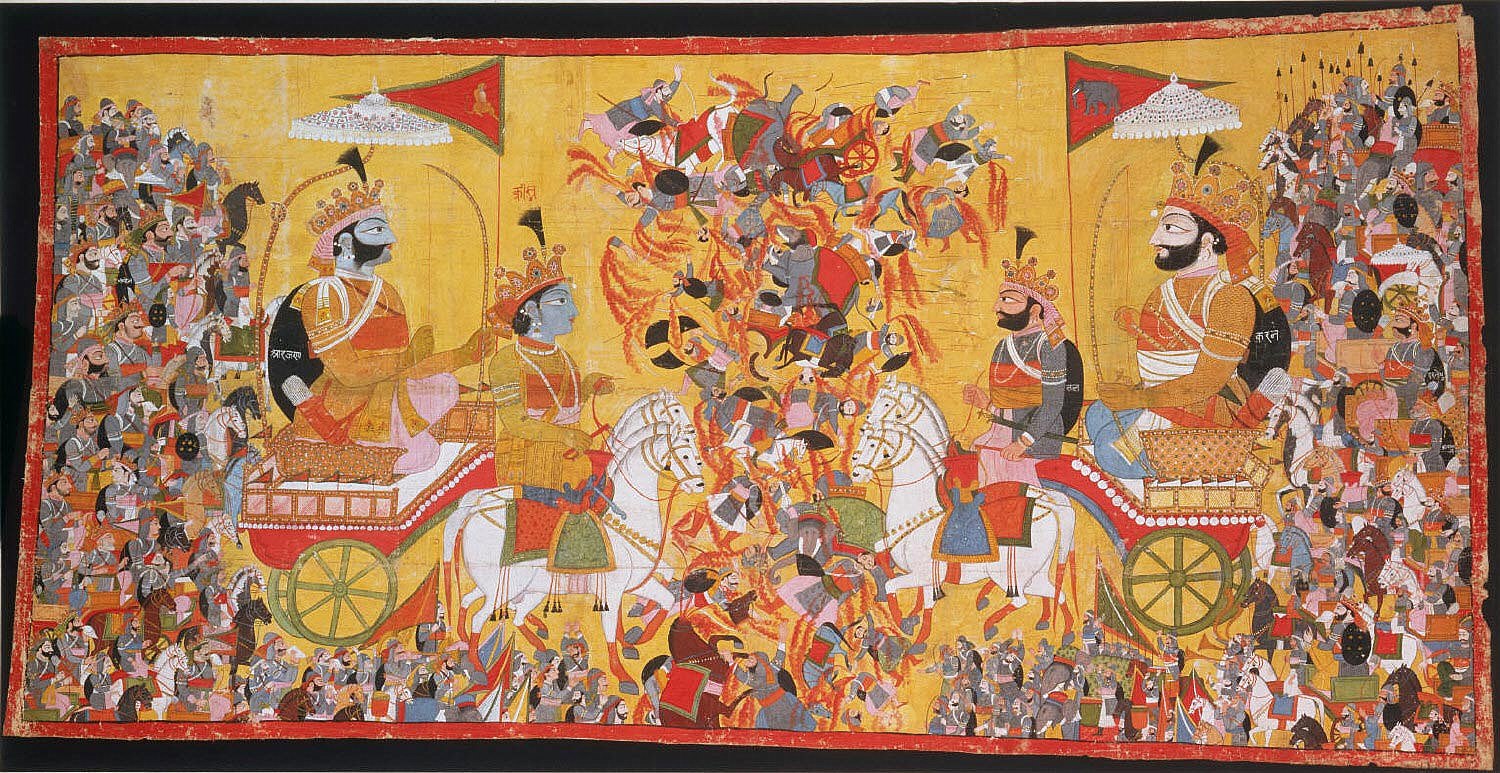I've been so excited to get to read this! I first ran across the anthology probably a little before it came out, when I was looking for speculative fiction (particularly sci-fi) by non-English and/or non-Western authors. It's out there, even in translation, it's just not always that easy to find! So, loving both sci-fi and new takes on old stories, I had long been looking forward to finding a copy of this book and reading it.
The introductions made it clear that this epic has so. many. different versions, and this anthology is just adding to them. I knew, of course, that individual storytellers are each going to have their own way of telling the story, but I hadn't realized how much leeway there is and just how much adaptation has been done over the years. It's something I would definitely love to learn more about! It kind of reminds me of Arthurian legend, how the same basic things get retold, but in different ways and different languages, over a long period of time, essentially creating its own genre...
The first story didn't impress me too much. It seemed like an extended version of something someone might do in this class, which is cool within the course framework, but not particularly revolutionary or notable within this anthology. Mostly I was just disturbed by the vitriol of some of the "comments."
The second story, "Exile," was amazing. I was reading it while sitting in a crowded, loud room, and I realized partway through that I was so absorbed I'd completely blocked out all the people around me. It's set in a futuristic world -- again, I always love the sci-fi -- and is able to do a lot of world-building, and do it clearly, within not very many pages. It didn't do much for me in terms of having me come away with a social message or anything, but the future subculture it built around the epic was pretty awesome.
I realized after the fact that the first three stories (how far I've read so far) relate loosely to Surpanaka being humiliated, as here where Lakshmana has cut off her nose.
Raja Ravi Press, 1920s
source: Wikimedia Commons



.jpg)


